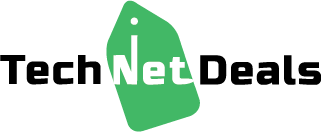
Django is one of the best Python frameworks for building web applications.
It is a high-level open-source web framework that allows developers to build scalable, robust, and efficient web applications quickly and efficiently. It is based on Python’s philosophy of keeping readability and simplicity at its core values while providing a powerful out-of-the-box toolkit for creating scalable web applications.
Why Use Django for Web Development?

Companies looking to Hire Python Developers often ask for Django talents as Django is one of the most used Python frameworks in the market these days. If you want to build your next web application on a Python framework, consider Django a viable and beneficial option.
Here are the top reasons for choosing Django as your Python development framework –
1. Rapid Development
Django provides a healthy and efficient environment for web development by following principles like DRY – Don’t Repeat Yourself, which promotes best practices in code reusability and improves the app’s efficiency. It has many built-in features and functionalities like form handling, proper authentication, and a good admin interface that reduces the time to develop such complex features from scratch. The ready-to-use components help developers focus more on the business logic rather than having to code for these repetitive functions, allowing developers to build feature-rich projects in lesser time.
2. Security Features
Django Python Framework was designed to incorporate robust security measures. It follows certain coding practices by default and provides provisions for protection against common vulnerabilities like Cross-Site Scripting (XSS) and Cross-Site Request Forgery (CSRF) attacks. Django also has the right measures to prevent SQL injection attacks, secure authentication, and authorization mechanisms like user and password management. Hence you can build highly secure web apps using Django.
3. Scalability
Suppose you have a small-scale project you anticipate growth in the near or distant future. In that case, Django is the right choice since it provides proper scalability room by utilizing various tools and technologies and following standard coding best practices. You can optimize your app’s performance, caching, and query optimization and easily integrate Django with other popular technologies.
4. Documentation and Support
Django follows proper documentation providing enough resources for developers to understand the framework comprehensively. It also has clear guidelines, real-life examples, and best practices for building, deploying, and designing Django applications. Moreover, the community is very supportive and provides ongoing help through forums, mailing lists, and other such gatherings.
5. Versatility
Django is a highly versatile framework that supports the integration of various popular databases like Oracle, SQLite, PostgreSQL, and MySQL. There’s also support for various deployment modules such as traditional, cloud, and others.
6. URL Routing
Django provides a URL Routing feature that provides a robust and elegant way of mapping URLs to specific views/functions of the code. This helps ease the management and organization of all URLs in the applications, which makes the app easier to maintain and manage.
7. Middleware Support:
Django has a middleware architecture that allows developers to process requests and responses globally across the entire app. These middleware components can be used for tasks like modifying HTTP headers, logging, and authentication. With this, developers can add custom functions to the request/response cycle.
8. Testing Frameworks
Django provides a complete testing setup that allows developers to write all kinds of tests and test their Django app thoroughly. There is support for unit, integration, and functional tests for testing web applications. You can always add another type of testing via extensions and rich Python libraries. This improves the overall reliability, security, and quality of the application.
9. SEO-Friendliness
Django is one of the most SEO-friendly frameworks providing user-friendly URLs and features like sitemaps and meta tags. This allows companies to make necessary changes and optimizations to their sites to have a better chance at ranking on Google SERP rankings and getting their URLs indexed and crawled, leading to better visibility and potential traffic.
10. In-built Form Handling
Django simplifies form handling with its in-built robust form API. It can help developers define, validate, process forms and reduce the boilerplate code significantly.
11. Scalable Architecture
Django’s properly scalable architecture promotes code reusability and a modular development approach. It enhances the code organization, management, and maintenance and gives the team more control and freedom over managing individual components without getting entangled in complex dependencies.
12. Templating Engine
Django has a powerful templating engine that allows developers to apply Separation of Concerns through a presentational layer and application logic. This helps improve code readability, maintainability, and reusability, making it easier to modify the UI of your application.
13. Extensible and Pluggable
Django is pluggable and extensible with third-party plugins and extensions. This allows developers to pick and choose features, design choices, performance optimizations, and other important aspects of web app development, giving them more control over the customization aspect. You can integrate Google Map APIs, secure payment gateways, unplug plugins and replace them with their current needs.
Types of websites built using Django Framework

Django is a versatile programming language that can be used for building different types of web applications.
Here are some of the most common types of websites where Django is the ideal choice for development:
A. CMS
Django has a solid foundation for building CMS solutions and platforms. It has features like user authentication, authorization, content publishing, version control, and a rich and intuitive admin panel.
B. Ecommerce Websites
Django is highly extensible, flexible, and scalable, which makes it an ideal choice for building ecommerce websites. You can easily set up product catalogs, payment gateways, shopping carts, order management, and other important features needed in a well-built ecommerce storefront.
C. Social Networking Platforms
Since Django is highly scalable, you can start your new social media startup on this framework and keep using it as you scale your platform and gain more visitors, traffic, and interactions. If you hire dedicated developers with experience building social media platforms on Django, you can create a robust, intuitive, and highly scalable social media project with reliable uptime and performance.
D. Real-Estate Websites
Django can also build real-estate websites with property listings, agent profiles, search options, super filters, and contact forms. Using Django, you can easily manage property details, vendor information, and location-based searches.
E. Educational Platforms
Django is also a viable option for creating educational platforms for institutes, parents, students, or any other stakeholder with user registration, course management, assessment, progress tracking, discussion forums, and other important and relevant features.
F. Community Platforms
Suppose you have a topic or product you want to create a community platform. In that case, choosing Django can serve you well. Django is a preferred framework for building intuitive community forums where users can share knowledge, ask questions, answer queries, find topics by categories, and do all other necessary activities in a forum community.
G. Booking and Reservation Systems
Use Django for building booking and reservation systems for various industries like movies and entertainment, hotel and restaurants, event venues, transportation services, and more. With Django, you can easily integrate features like availability calendars, payment processing, booking management, and more.
Final Words
These are the various use case and pros of using Django for web development. If you are looking for an ideal framework to build your next robust, scalable, and user-friendly web portal, app, or software, try Django.
Read Also:






